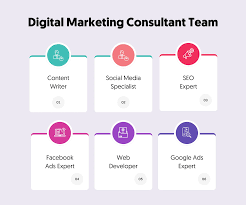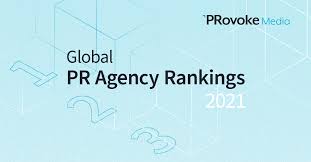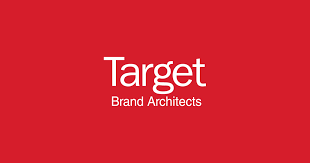Unlocking Success: The Essential Role of Digital Media Consultants in Today’s Business World
The Role of Digital Media Consultants in Today’s Business Landscape
In the fast-paced digital age, businesses are constantly seeking ways to enhance their online presence and engage with their target audience effectively. This is where digital media consultants play a crucial role. Digital media consultants are experts in leveraging digital channels to help businesses reach their marketing goals and connect with customers in a meaningful way.
One of the key responsibilities of digital media consultants is to develop comprehensive digital marketing strategies tailored to the specific needs and objectives of each client. They analyse market trends, consumer behaviour, and competition to identify opportunities for growth and engagement.
Moreover, digital media consultants are proficient in utilising various online platforms such as social media, search engines, email marketing, and content management systems to create impactful campaigns that drive traffic and conversions. By staying abreast of the latest trends and technologies in digital marketing, they can recommend innovative solutions that set businesses apart from their competitors.
Another important aspect of the work carried out by digital media consultants is monitoring and analysing campaign performance. They use analytics tools to track key performance indicators (KPIs) such as website traffic, conversion rates, click-through rates, and social engagement metrics. Based on these insights, they make data-driven decisions to optimise campaigns for better results.
Furthermore, digital media consultants often provide training and guidance to internal teams on best practices for managing digital channels effectively. They offer valuable expertise on content creation, social media management, SEO strategies, and online advertising techniques to empower businesses to take control of their online presence.
In conclusion, the role of digital media consultants is indispensable in helping businesses navigate the complex world of online marketing. By harnessing their expertise and strategic insights, businesses can enhance brand visibility, engage with customers authentically, and drive sustainable growth in today’s competitive digital landscape.
6 Essential Tips for Success as a Digital Media Consultant
- Stay updated with the latest digital trends and technologies.
- Build a strong online presence to showcase your expertise.
- Develop excellent communication and interpersonal skills.
- Offer tailored solutions to meet each client’s specific needs.
- Provide clear and transparent pricing for your services.
- Seek feedback from clients to continuously improve your services.
Stay updated with the latest digital trends and technologies.
To excel as a digital media consultant, it is essential to stay updated with the latest digital trends and technologies. The digital landscape is constantly evolving, with new platforms, tools, and strategies emerging regularly. By keeping abreast of these developments, consultants can offer innovative solutions to their clients and ensure that their campaigns remain effective and competitive. Continuous learning and adaptation to new trends not only demonstrate expertise but also enable consultants to deliver impactful results in an ever-changing digital environment.
Build a strong online presence to showcase your expertise.
Building a strong online presence is essential for digital media consultants to demonstrate their expertise and credibility in the industry. By creating a professional website, engaging on social media platforms, and sharing valuable content regularly, consultants can showcase their knowledge and skills to potential clients. A robust online presence not only establishes trust with audiences but also helps consultants stand out in a competitive market, positioning them as trusted advisors in the digital media landscape.
Develop excellent communication and interpersonal skills.
To excel as a digital media consultant, it is essential to develop excellent communication and interpersonal skills. Effective communication is key to conveying ideas, strategies, and campaign results clearly to clients and team members. Strong interpersonal skills enable consultants to build rapport with clients, understand their needs, and collaborate effectively to achieve common goals. By honing these skills, digital media consultants can establish trust, foster positive relationships, and deliver exceptional results in the dynamic world of digital marketing.
Offer tailored solutions to meet each client’s specific needs.
Digital media consultants play a vital role in the success of businesses by offering tailored solutions to meet each client’s specific needs. By taking the time to understand the unique objectives, target audience, and challenges of each client, digital media consultants can develop customised strategies that align with their goals. This personalised approach ensures that clients receive solutions that are not only effective but also relevant and impactful in achieving their desired outcomes. By offering tailored solutions, digital media consultants can help businesses stand out in a crowded digital landscape and drive meaningful results that contribute to long-term success.
Provide clear and transparent pricing for your services.
When working as a digital media consultant, it is essential to provide clear and transparent pricing for your services. By being upfront about the costs involved, you establish trust with your clients and demonstrate professionalism. Clear pricing helps clients understand the value they are receiving and allows for better budget planning on their end. Transparency in pricing also sets clear expectations and avoids any misunderstandings down the line, leading to a smoother working relationship and ultimately, greater satisfaction for both parties involved.
Seek feedback from clients to continuously improve your services.
Seeking feedback from clients is a crucial practice for digital media consultants to continuously enhance their services. By actively listening to the opinions and suggestions of clients, consultants can gain valuable insights into areas of improvement and identify strengths to build upon. This feedback loop not only fosters stronger client relationships but also enables consultants to adapt their strategies and approaches based on real-world experiences. Embracing feedback as a tool for growth allows digital media consultants to stay agile, relevant, and responsive to the evolving needs of their clients in the dynamic digital landscape.












